Angsty, anxious, awkward: Historical romances that explore the good, the bad, and the ugly of marriage
I'm currently working on a few manuscripts with major angsty energy, so now you get to be in those feelings too. How fun! Nothing better for the month with Valentine's Day...
Hello my friends. Occasionally, I have collected musings that don’t necessarily fit neatly into my newsletter updates, or are lengthier than I want for my newsletter updates, so I’ll organize them into their own special issue to shine.
So, please enjoy this special issue of the Savitastack and take a dive into angsty historical romances that are top of mind with some of my current writings-in-progress.
Sometimes I love high-octane emotions and drama in my fiction. (Not in my real life! I need routine! reliability! stability!) Historical romance provides the perfect playground for high stakes and even higher tension. You want action and adventure? There’s a historical romance for that. You want masquerades, mystery, murder, and mayhem? Again, you’ll find a story to suit your needs. Suspense and thriller vibes? Of course. Gothic atmosphere, darker emotional melodrama, and angst galore? For sure. Dark secrets in the past and even darker secrets in the present? You bet, along with a healthy serving of mutual yearning (pining is one of my favorite things to read and write).
In fact, many historical romance novels combine some elements from all of these categories (the third act wildcard action sequence is quite famous in the genre among various authors) and straddle genre divides. There’s so much story world richness and character development along with a fantastic romance in these novels, and that’s why I love the genre so much. (Not to mention, I’m usually always learning something new about agriculture and industry, changes in society, or politics and government, too). When I read I want to feel things. And historical romance packs the highest highs, and the most agony-inducing heartache lows. The best part is, (if those emotional extremes weren’t enough to convince you), with the promise of the romance premise, I know I can withstand the emotional rollercoaster and I will want to. Because if an author’s done it right, I will feel the swelling joy of being catapulted from that lowest low to that promised land of the blissful happily ever after—that’s what we’re all here for, right?
Here, I wanted to collect some historical romances that go beyond the wedding to explore the pragmatic realities of historical marriages. Arranged marriages or marriages of convenience are perfect for creating angst. The marriages in the books within this post may not follow these tropes to the letter, but that’s what I think makes them even more worth writing about here. These novels are the ones that I describe as the “the angsty, the anxious, and the awkward.” Perhaps better stated as “books that broke me.”
In addition to loving lighter historical romances when the occasion calls for one, I often find myself gravitating to grittier, darker, angstier, offerings as well. Do you, too, wish to be wrecked by what you read? Then look no further. They might even make you cry into your bowl of Lucky Charms at the breakfast table before you go to work—or maybe that’s just me. But these books will put your heart through the wringer. And, you might even love them for it? I certainly do.
Conceiving an Heir
Waking Up with the Duke by Lorraine Heath
Wisdom was supposed to arrive with age, but apparently for her it had taken a detour.
Lorraine Heath is one of my angsty go-to authors. I love the tone of her romances and the emotional depth she crafts with her characters. This book is one that can be controversial. But I was fascinated. There are so many complexities in the characters’ motivations, and this story largely stays in a very gray area.
In terms of how this romance goes beyond the wedding to discuss the sometimes grim realties of marriage, the focus here is on the practicalities of conceiving an heir. Heath does not shy away from how awkward and complicated this is, for everyone, and there’s a lot of anxiety and pressure for the people involved. And I do mean people. It’s more than the central couple involved with the consequences here. I appreciated that as someone looking for stronger, higher stakes in these kinds of stories. No one is left unscathed, and it really made me think about the different costs associated with maintaining a marriage to a title. 96% of the way through, I was still wondering how Heath was believably going to have her characters overcome the creative, seemingly insurmountable, obstacles she crafted for them, but oh, did she succeed—as she so often does with her books.
Did I tear up? Absolutely. Ainsley is the standout here. When a rake is defeated by the fact that the one and only thing society expects of him and reinforces/rewards isn’t worth anything to this woman, and he’s a mess of doubts, anxiety, and angst, and soon that spreads to create other doubts, and he wishes her lack of attraction wasn’t crushing his confidence, and he desperately wants her to enjoy this, and oh god, she deserves better. All of this cyclical angst just breaks my heart in the best way.
It’s not because I love when heroes have a healthy spoonful of humbling self-loathing. (Okay, well, not entirely that, but to be fair, there are many Regency heroes who are self-loathing. It’s part of their grumpy autocratic allure, and you know, the perils of the period and the peerage, etc.). It’s because there is a palpable power shift in such stories, and this tectonic rebalancing brings about an excellent opportunity for communication and emotional connection. And that’s the real reason I love these breaking points in angsty romances. There’s something beautiful in the aftermath. Something new that grows with a firmer, more real foundation. Something the hero and heroine can never go back from. They’ve changed. Usually for the better. And so have I as a reader.
Additionally, as historical romance authors, we’re writing in the present and playing in the past. That means there’s often an interesting counterposing of vulnerability in the hero to the shackling expectations of his society. I’m enticed by angsty stories because they often delve deeper into how ideals of masculinity are challenged and changed within the hero. Angst has an anchor, and it’s usually within ourselves. As a psychologist, romance reader, and writer, I love seeing the hero work through this on the page. It heightens the sense of internal conflict.
As an aside, a novel I love that plays with this idea of prototypical masculinity in a very alpha-appearing historical hero is Scandalous Desires by Elizabeth Hoyt, and I’m sure I’ll be talking all about the glorious gritty angst in the Maiden Lane series in future installments here.
But back to Waking Up With the Duke. Not to worry, we don’t just see Ainsley self-loathing. Of course Heath has him come into his own, and connect with Jayne emotionally, through lovely, cute, and comforting evening routines that add an element of shy firsts for them both, and then Jayne does begin to genuinely desire him, and it makes him so happy.
My heart was so full. I gushed, and I cried, this time from happiness.
Even more compelling in some ways were Ainsley’s discussions with his mother, and her relationship with Leo, and the rest of the family, too.
Even more angst from Lorraine Heath
Heath is no stranger to unconventional and angsty setups. The Earl Takes All, Passions of a Wicked Earl, and Pleasures of a Notorious Gentleman are three more that play with the way a marriage is contrived and examine the consequences of this on the page. There are strong emotions, uncomfortable secrets, and consequences for all involved.
I don’t adequately have the space here to go into all of these with the diligence they are due, but to entice you, here’s just a taste of the delicious mess Heath creates in each of these, and they are well worth the read.
A hero with a twin brother who quite literally replaces him and pretends to be him to the dying twin’s pregnant wife in The Earl Takes All to avoid causing her stress and risking her, and the baby’s, wellbeing. Yes, you read that correctly. And also, yes, this is the infamous Gorilla twins book for all of you familiar with the reputation that precedes it already. I was astounded at how Heath wove everything into a solid HEA here. It was remarkable and I cried when reading this book, also at my breakfast table, where it seems I do most of my audiobook-accompanied weeping.
The next two books are the first and second in London’s Greatest Lovers (Waking Up with the Duke is the third in that series).
In Passions of a Wicked Earl, the hero was cuckolded by his younger brother because his young wife was closer in age to his brother and afraid of wedding night intimacy. So he did what any friend would do to buy her some time: get discovered in bed with her. The hero then punches his younger brother to a pulp, and takes up with a mistress who is still on the page for a great deal of the book as these two try to figure out if they still have a marriage left to salvage after living separately for some time. There is some harrowing third act drama with a miscarriage, so please tread lightly if needed, and look up content notes.
The younger brother of the earl above is the hero in the second book, now with amnesia post The Crimean War. He hides it from the heroine, and the heroine pretends to have given birth to the child he didn’t know he had by another woman in Pleasures of a Notorious Gentleman. Both characters meet originally while at war, and then again when she shows up with the baby in tow at his doorstep after the war. Quite the start to this story, and the lies and secrets continue to mount, until it is so stressful near the end, and everything, of course, implodes.
Ainsley in Waking Up with the Duke is the youngest brother of these three and all the family and power dynamics running through the trilogy are fascinating. The heroes all have different fathers. Two brothers are titled, one is not. The older brothers have to depend on their youngest brother’s wealth and influence because he’s a duke. The youngest is the most mature of them all in their eyes. Really interesting layers to this family and I loved reading these books, even if I didn’t always like or agree with all of the characters at various points.
I will say, the evil mistress figure is not my favorite—it really flattens women as characters—and both of these early London’s Greatest Lovers books have that aspect, so do with that what you will.
A Lady Awakened by Cecilia Grant
Her eyes opened, their irises like fresh-turned earth, and found his in the mirror. “I trust you, Mirkwood.” And no woman, ever, would say any words more thrilling to him than those.
This has been well-touted for it’s angst, and the author says in her own bio that she writes with a “high angst-to-plot ratio,” so of course, it was a much anticipated book for me. (Susan Ericksen narrates the audiobook and she is one of my favorites). There’s humor, and a wonderful sunshine-y rake who is bewildered by the way his charms do absolutely nothing for the stern widow heroine.
The two characters are intimate early on, and it is awkward and angry and full of angst and anxiety—especially for our hero. And as I said above, I love when we get to see the inner turmoil of tumultuous thoughts and insecurities in a hero, and not just the heroine in a story. In fact, Martha is pretty no-nonsense and unfazed by the whole situation for the majority of the novel. And why wouldn’t she be, it was her proposition, after all. She doesn’t want soft sentiments or sensuality, she wants to make sure she doesn’t give more of herself than she’s willing to give and that means it needs to be impersonal. A business transaction only.
It’s Theo who struggles with feeling like, in his terms, “a stud, a whore,” and what this means for how much of himself he’s willing to give. He thought he would have no problem with transactional seduction, and then finds that he does want a softer more tentative exploration, or at least a basis in real emotion. It’s where he even feels that he might have more of an advantage if Martha did not know how skilled and experienced he was, because she thinks him foolish for wanting the sweeter side of intimacy when he has such acclaimed prowess (again in his own words) and isn’t new to physical intimacy.
The whole agreement between them challenges notions of how much meaning Theo, and indeed Martha, can find in something they’ve done before. Is emotional meaning found in the acts, the person, or both? Is love found there too? Does new mean that it needs to be the first time? The entire story journeys through finding answers to all of these questions, and maintains wonderful tension even with both characters being more experienced.
Things heat up majorly by 75% into the book, and the steam and sweetness are balanced by an intriguing plot around business in the countryside. I love those plots where the hero and heroine come into their own by working together, with some memorable characters in a small town. In sum, in a genre that upholds virginal heroines, and indeed, virgin heroes, too, this is a refreshing take. The economic and class constraints only enhance the intriguing tension across all fronts of the plot and firmly root the story to the realities of the time period.
He brought his fingertips back to touch his own lips, then hers. A chaste goodnight, absurd between a man and his mistress, preposterous between a woman and her hired stud, but suitable, perhaps, for two, ill-matched strangers who’d improbably found their way to friendship.
Even more angst from Cecilia Grant
Grant’s entire Blackshear Family series is amazing. The second book, A Gentleman Undone, is perhaps even angstier than the first, and again, like Heath, Grant sets up complex family dynamics where not everyone agrees and not all rifts are perfectly resolved between people at the end of each book, which is a great note of reality in these books. The hero’s family is not unanimously on board with his choice of wife, and we see the continued conflict that brings with the next brother in the third book. I also loved how unique Lydia was as a shrewd heroine who is a mathematical maestro and ruthlessly counts cards.
I’ve been reading Cecilia Grant’s Christmas novella, A Christmas Gone Perfectly Wrong, for a year now because I want to savor it. This is the last book by Grant left for me to read, so I’m taking my time to enjoy her incredible prose.
The Marriage Bed by Laura Lee Guhrke
In this conceiving an heir book the couple has been living their own separate lives for years, going so far as to never show up to the same society events. The story begins with the hero’s cousin and son dying from scarlet fever, which makes the hero the new heir. John wants to secure his line so a relative he thinks is reckless cannot inherit the title and estate. So now, he and his wife need to conceive an heir.
These two get it all out in the open and discuss every mistress he’s had in the intervening years of their estrangement. Why it’s unfair that the heroine can’t have affairs to be on even footing with him because they have to make sure she only has his child and no other man’s—even when there’s a rumor that one of the women in society who was his mistress has a son that is his. And why he’s not sure if he can be faithful if she won’t be physically forthcoming.
Even the heroine’s friend, who Viola set up with her elder brother, says it’s got to be difficult for a man to not have physical intimacy, even more than for a woman, and that sentiment and lack of unconditional support for her friend is jarring to see on the page. I generally prefer to write with a more modern reader in mind, but alas, in this problematic book it’s not difficult to believe that, yes, these were upheld truths of the period.
It’s definitely not an easy, escapist read, and very much makes salient the uncomfortable, harsh realities of the period and the lack of agency for women who might try to make a case for divorce. Even though the heroine’s brother is a duke, the hero directly states that he can try to make the case for her in the House of Lords and yet he would lose, because the power still resides with him as the husband and Parliament would return her to him. His wife would be the one faced with ruin and scandal for trying such a thing. Never him. Because, of course, men protect men. His wife is truly resigned and without options and he actually says no man would fault him for using force, but hey, at least he knows that is morally reprehensible. The other card on the table is that they both once shared a very heated and passionate sex life and John knows Viola’s aware of that and can’t resist, and she’s not totally opposed to the idea of rekindling that.
But they do need to build trust, and it does get better from there, John actively tries to court Viola, and understand why she wants love and indeed, what love even is.
“I told you I do not want to redecorate your house.”
“It’s yours, too. I pledged my troth when we got married, remember? With all my worldly goods, I thee endowed, and all that.”
She folded her arms. “You didn’t have any worldly goods.”
“I had estates. A title. A few horrid paintings of previous viscounts. What, those didn’t count?”
The end is absolutely deeply messy, and I can’t say I truly believed the HEA but that’s their problem to figure out, not mine. I knew this book was challenging to love going into reading it and was really just curious to read about another marriage in crisis, so it did deliver on that. The courting moments were cute, and I think I was expecting more angst in the vein of Passions of a Wicked Earl, so the fact that there was some levity and humor was a nice surprise too.
Marriage of Convenience
Ravishing the Heiress by Sherry Thomas
But the love of his life was the one with whom he’d built his life.
The marriage in trouble thread that runs through so many of Sherry Thomas’s novels is such a great lens for examining the realities of marriages in this time period. The class divides, the struggle for autonomy—financially and legally. There’s a lot of interesting stuff going on in these stories. Not to mention the stark prose, historical richness (I am always learning more about locations not typically present in historical romance), and the plot drama.
Thomas broke my heart with Not Quite a Husband and that’s why that book is last in this list. Reading Ravishing the Heiress put it back together. The same amazing writing and a friends-to-lovers tale? Sold. So many wonderful moments of pining and bonding.
I discussed the arranged marriage trope in Indian American diaspora contemporary romance on the Shelf Love podcast. This book brings up a lot of the beautiful quiet moments that I appreciate and adore about such stories, and the arranged marriage plot works so well in historical romances.
The best way for me to discuss how it works in this story is through some quotes that still linger in my memory in the quiet, haunting way that Thomas’s words always do.
“All we’ve done here is take things down and prevent further deterioration,” he said. “Let’s grow something—something new, something that is ours.”
You don’t know what you ask. You don’t know the terrible hopes this will ignite in me.
“Thank you,” she said. “It will be beautiful.”
I’m about to cry just typing this quote. The thing is, it’s not going to be everyone’s favorite that the heroine is the one pining more from the start. It’s going to feel uncomfortable and awkward. But to me, this is necessary to show the fortitude that arranged marriages require(d)—and the cost of feeling too little or feeling too much. It’s necessary for the story that we see both of these costs in Millie’s POV because it provides that level of heroine agency that is so compelling. It’s a vital part of her arc in the story and her growth as she takes on more leadership in her life, personally and professionally. It hooks the reader to ask, what is the absolute psychological limit to what she’ll give from her heart, and what she’ll keep? What are the emotions the character either doesn’t have, can’t express, or won’t give?
And this one below. Where to even begin with the beautiful emotion and language contained within—the cruel juxtaposition of building a house but not a home? Growing attached to the place and the person? The push-and-pull of becoming friends, but not more? I don’t envy the pain, but I can appreciate the depth of quiet longing.
The sparseness of those two, short, final lines makes the knife cut deeper. Poignant and potent. As I said, no lack of haunting prose here.
But when they worked toward a common purpose, when they conspired to keep the secret of the house’s “repairs” from the rest of the world, and when he sat across the table from her and laughed, it was nearly impossible to believe that they were not building something together.
They were: a better house.
And nothing else.
Annulment and Separation
Not Quite a Husband by Sherry Thomas
At last we’ve arrived. This is it, the angstiest of the angsty. With heaps of anxious and awkward in there for good measure too. I have to start upfront by reminding you that I love this book, and yes, it did destroy me, but I still love it. I enjoy a story that shows a hard-won—often imperfect, or unconventional—love, and all the thorns of reality along the route it took to get there.
Her heart was made of glass: It could break, but it could not expand.
This book would make a fantastic film, as would My Beautiful Enemy by Thomas, but that’ll be the subject of another post perhaps. Thomas’s books often include settings other than England and that’s an appealing storytelling element too.
Anyway, here’s what Sherry Thomas shows so well in her novels—everything that happens after the wedding. How the happily-ever-after might not be so happy, but still finds its way back, or becomes something new. There is so much psychological depth and richness in the complexity of the characters, and their interactions, however fumbling they might be, are achingly real.
What I find compelling about second chance or reunion romance stories is in the name itself, sometimes you tried your best, yet you still cannot control luck or timing. People often don’t like to think about what we cannot control, but it’s important to consider nonetheless. At the micro-level of any moment within the timeline of both characters in this story, the experience they’re each having is heart-wrenching—nothing but pure myopic agony—but as the reader, we can thread together the expansiveness of how the story wends through time. Seeing the aerial view makes you appreciate the journey, and emphasizes that sometimes life takes the long way ‘round, and that can be lovely too.
What I find compelling about childhood friends and enemies to lovers stories is that there is history there. A deeper intimacy is necessary to know each other’s buttons and exactly how to push them. You know the worst parts of each other, and indeed, that’s the best you can offer at times—just a bouquet of broken pieces of yourself, clutched so tightly in a fist that you’d rather hurt yourself than try to put them together into the semblance of something useful or meaningful.
He had gone into their marriage determined that she would never be alone again. In the end, she’d made him as alone in the world as she.
The above quote still makes my heart ache. There are so many ways to love and hurt someone, and we see many of them in this story as well as how the lines are blurred and redrawn between love and hurt and hate. We see so clearly how Leo and Bryony hold on to old hurts and how the time apart was a) needed, and b) the price their pride demanded, and they take the consequences in equal measure.
I didn’t always agree with their decisions, and there are some pretty controversial things that happen and were difficult to read about, so tread lightly, and look up content warnings. Both characters did some terrible things. They’re not always likable, or even good, people. But, they felt like real people, and in the end, they seemed to understand that the consequence of the time they lost was that they would still have to carry the weight of their wrongs, even as they tried to make sure it didn’t anchor them to the past. This to me, is the reality of two individuals’ lives coming together in the HEA. That HEA is one more moment on their timeline as individuals and together. It does not erase the past, nor would it exist without it. Bryony and Leo will have more work to do, but I trust that they understand that, and that makes the relationship, story, and characters believable for me.
There are so many other excellent and unique things in this story: Bryony is older than Leo, she has some noticeably white hair, she proposed to him, she’s a doctor, and he’s a mathematician. Lots of layers in their dynamic to dissect and analyze.
Even more angst from Sherry Thomas
Another Sherry Thomas favorite that uses this theme is Private Arrangements. The novel doesn’t shy away from the terrible, ugly truths of marriage, and the worst sides of those you love that are revealed. The main characters are not always likeable, but they are always interesting, and it might be precisely because of their strong, polarizing natures. They are certainly impossible to ignore. When those softer moments are unearthed, it’s all the sweeter.
Their Trio in Trieste by Sri Savita
He would seduce his wife. And then perhaps, he would have a chance to win back her heart.
This MMF historical erotica short story is set in Italy, and offers a polyamorous take on a marriage in trouble tale. Maya is Indian, Peregrine is Italian, and they both grew up, met, and fell in love in Trieste. They married and started a life there, but have been living separately for years. Maya left for Spain, and Peregrine remained in Italy. The couple is reunited at the start of the story in Trieste for different reasons—but she’s not alone and has brought her younger lover, Dario, with her, too.
This short story poured out of me in one go. I really love how it turned out, and the complex layers I could work with to write bits of their past backstory as a couple, and the reconnection happening in the present, along with the added challenge of a new partner in the mix for Maya, and whether Peregrine could come to terms with that.
If you so desire, then you can read and listen to Their Trio in Trieste on Rosy. (Use my author promo code SRISAVITA to get your first month of Rosy Silver Membership for free. All subscriptions auto-renew at the full price. I don’t earn commission. Simply a way to try Rosy and see if they’re for you). Enjoy!
“Do you love him?” Peregrine’s tone was hard to decipher.
Yes, was what Maya wanted to say. It should have been what she said.
Instead, she met his gaze and issued her own question in return. “Do you want to find out?”
And there you have it friends. So, will you be braving the angst and picking up any of these books to read? Are there other angsty romances that I should know about? Tell me your favorites!
I’d better get back to drafting my current marriage-in-peril book. So, until next time, wishing you happy (and perhaps, a dive into angstier) future reading and writing.
Sri






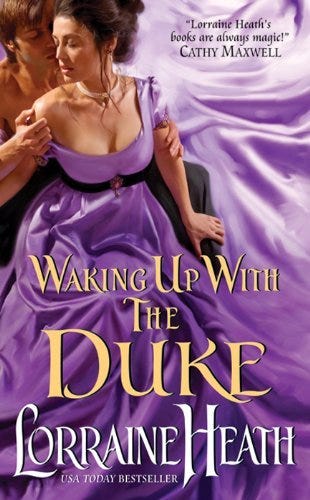
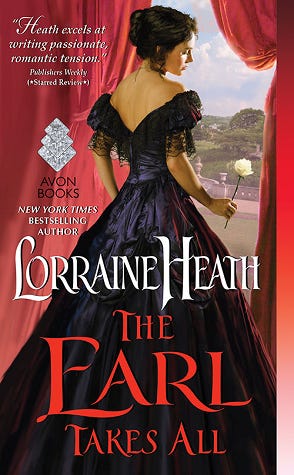
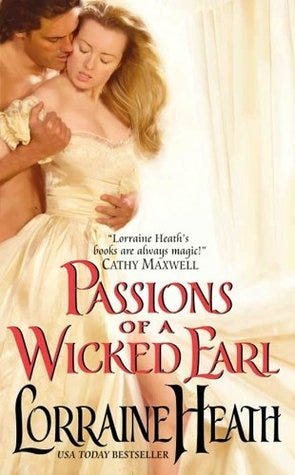
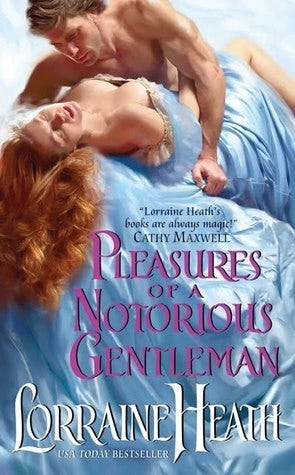

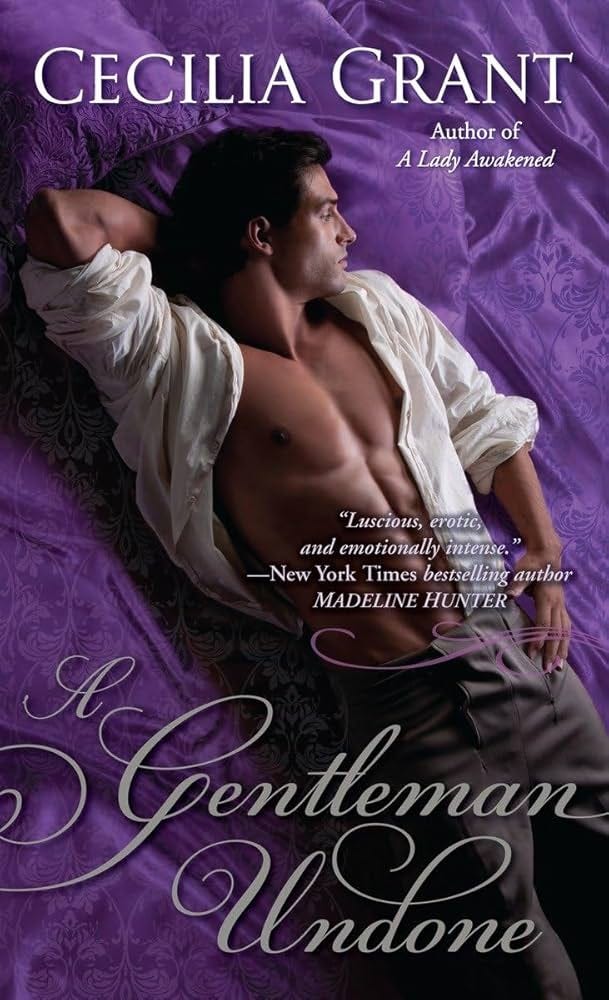
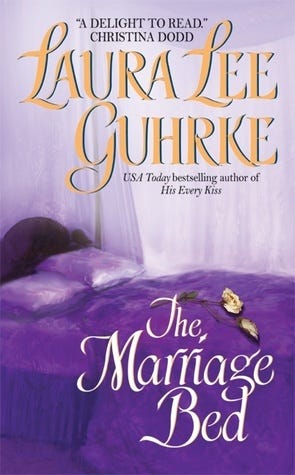

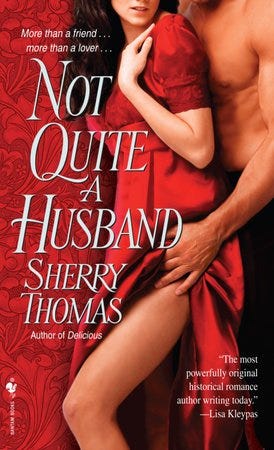
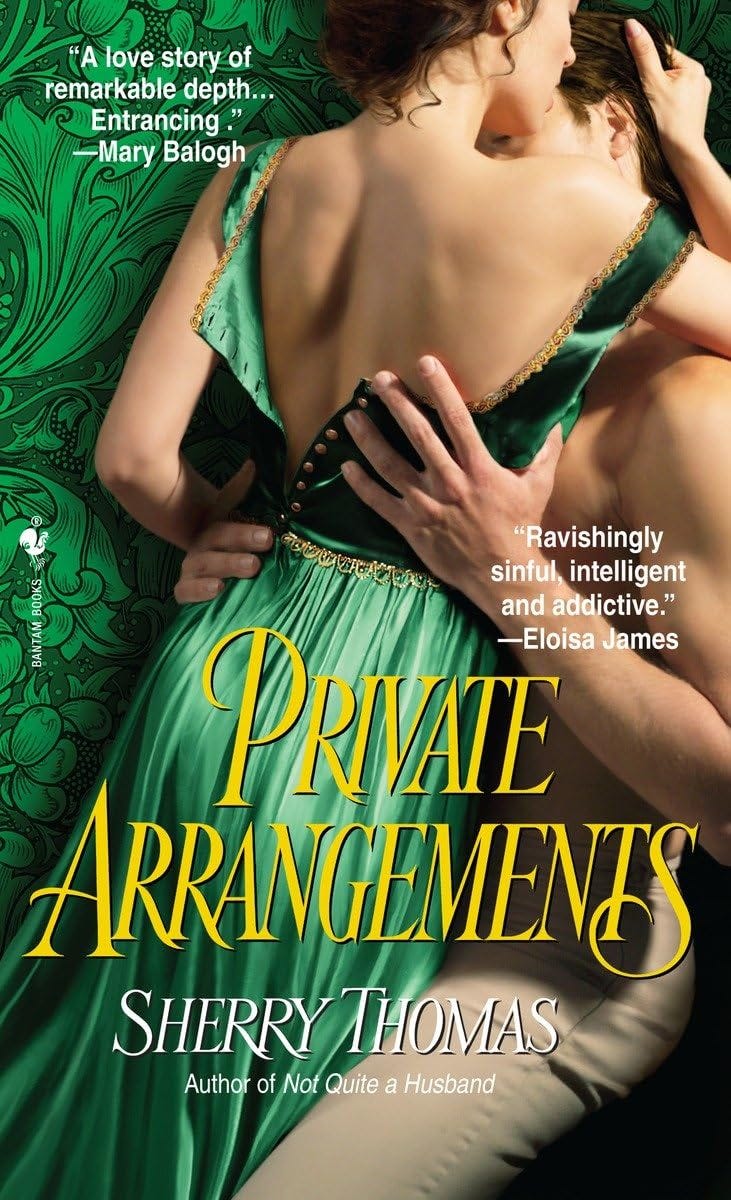
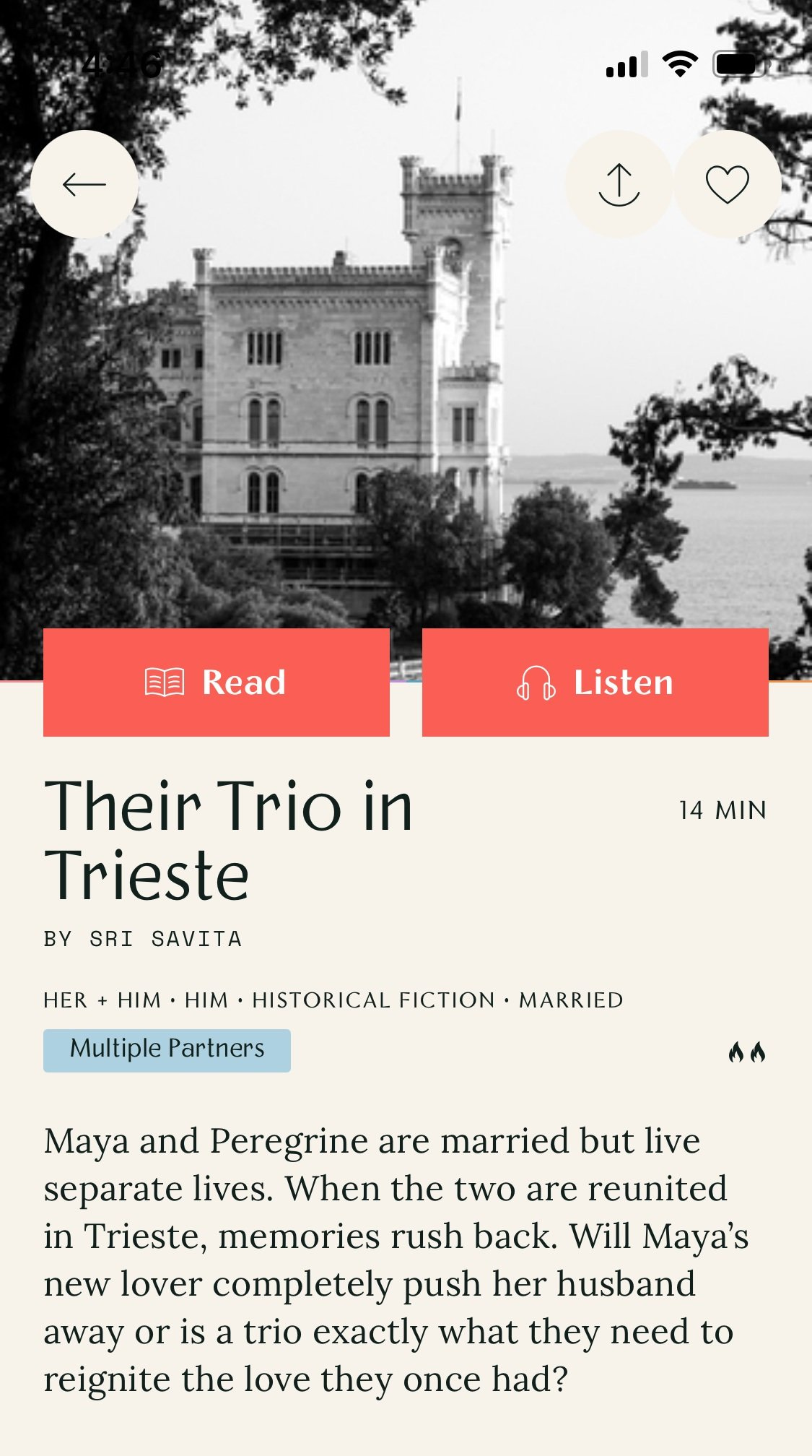
Wow! Just what I need to help me make selections for my bookshelf / Kindle.
I am bookmarking this! Also great to see you sharing one of your Meet Rosy stories which is absolutely awesome - a recommended read from me!